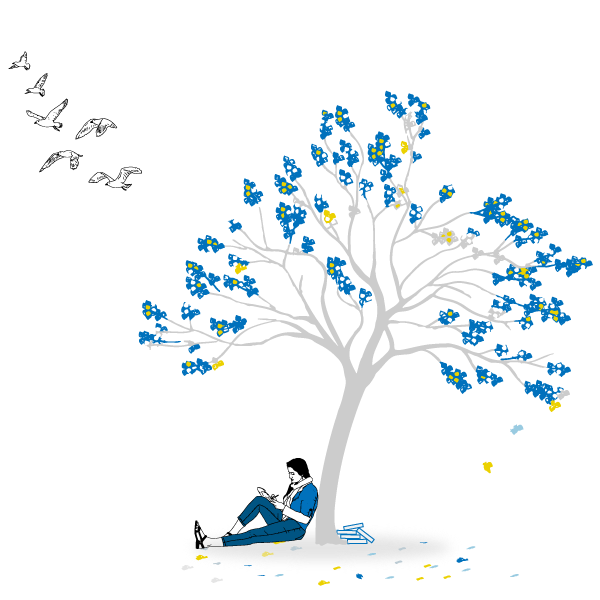Still Sundays
February 5th, 2012.
The super bowl of social media and creativity.
I woke up thinking about Wednesday this morning. As if Wednesday was a person I knew.
This last Wednesday was a chaotic morning and no amount of breathing was going to lift me out of the mushroom of frenzy.
Usually calm and steady, on Wednesday morning I was agitated and hyper sensitive to noise. I always try to see what is the longest amount of time I can go without plugging into music with my headphones. This time even music didn’t help. People rushing to some grand nowhere. I joined them to head to one of the most dilapidated parts of New York City. Poverty has a smell just like hundred dollar bills do. In fact, poverty even has a skin: it’s aged even at twelve. I tried not to be frustrated by the overcrowded subway, grateful for a seat I sat down. The subway train was experiencing many difficulties so drinking my cup of coffee wasn’t the best idea without risking a spill.
The woman seated next to me kept rocking back and forth, side to side, between falling asleep on my shoulder to falling onto the shoulder of the woman to her right. She was oscillating between a frustrated me and a woman to her right who was buried in her book. She was maybe in her mid-60s and just plain tired. Maybe from a night shift. Maybe from taking care of someone. She was not a bum. She was no “bag lady”. She didn’t smell of any odors that one might associate with one who is falling asleep on the subway because they do not have shelter. Tick-tock between us. She went back and forth like a weight hung from some fixed point.
And the following thought startled me: Who says God is created in man’s image? Speak now or forever hold this woman.
I thought about that moment this Sunday morning that became an afternoon. I thought about that moment as I also recalled someone telling me “the human condition isn’t easy for anybody” in reference to showing compassion for the emotionally needy and lonely. The context was social media.
Everyone wants to be “the light” but no one wants to be that person upon whom a stranger, tired from playing the cards he or she has been dealt, rests his or her head. We all want to be stokers of the human condition from far away. New York City is too crowded….or my town is too small to meet new people….but I am compassionate and understanding and empathetic so I will “like”, “heart”, “leave a comment” on that lonely virtual friend’s facebook post, posterous photo, tweet a twit.
The wunderkinds who launched various social media tools for us are already onto their next projects leaving us in the dust.
Awhile back, during one of my travels, I read an article in Hemispheres, the United Airlines inflight magazine, by Peter Cohan profiling former Facebook employees.
Jeff Hammerbacher was hired by Facebook founder Mark Zuckerberg (fittingly, in a friend-of-a-friend scenario), and developed a wondrously efficient system to handle the massive amounts of data coursing through the website. Not only was Hammerbacher fast becoming an important player in the rarefied world of Silicon Valley, but he was also on his way to becoming very well-off.
Then, in 2008, he chucked it all.
Speaking from his Palo Alto office recently, Hammerbacher seems at a loss to explain his decision to quit Facebook (currently valued at upward of $100 billion). “To be honest, I didn’t run through any real calculus,” he says. “I just felt like it was time for something new.”
What is he upto?
His talents are currently being applied to one of the greatest puzzles of human existence. The basic idea being this: If you can tell a half-billion social networkers which celebrity they most or least resemble, maybe you can do similar things with cancerous cells.
Then the article continued to offer short excerpts about some of the others:
Chris Hughes
After cofounding Facebook as a Harvard student, Hughes left in 2007 to oversee social media strategy for the Obama campaign. Then, in 2010, he started Jumo, an “online platform to connect [those] working to change the world.”Dustin Moskovitz
Another Facebook cofounder, Moskovitz left in 2008 to launch his own software firm, Asana, meant to be “to your work life what Facebook is to your social life.” He took Justin Rosenstein, a top Facebook engineer/evangelist, with him.Ruchi Sanghvi
Hired in 2005, Facebook’s first female engineer was key in rolling out the site’s news feed — a hugely controversial feature at the outset, with much of the ire directed at Sanghvi. She left last year to become a freelance adviser and investor.Chris Putnam
By pulling off a series of playful Facebook hacks, Putnam got more than the firm’s attention — he got a job as a software engineer. After creating Facebook Chat and Facebook Video, though, he left last year, and has yet to reveal his next act.
They are software artists creating and going onto their next projects. However, the tools to share information they created for us, have come to mean something different for everyone.
Social media has become our E = MC 2. Representative particles of the mass of the human condition measuring the energy content. I hope we don’t self-detonate in creativity that doesn’t yield anything beyond page hits, likes, retweets, fans, friends, under a mushroom cloud of atomic noise explosion.
On Friday I went to visit a dear friend for a late lunch/ early dinner in the beautiful, quiet, unpretentious college town of Princeton. Supper. Yes. That’s what those are called.
While walking towards the restaurant we walked past a lovely boutique that sold quaint collectibles. As we were walking by I noticed through one of the shop windows a piece of art work that I recognized. I asked my friend if we could quickly stop in. I was delighted to discover I was indeed correct! This boutique had a few mixed media art pieces by the very same artist I had discovered during a road trip in 2009 with my mother. Somewhere between South Dakota and Wyoming there was a gift shop that served homemade pies (next to an isolated gas station of all places!) that had some of this artist’s works.
Friday night I bought a small work for my sister in Princeton.
When I returned to New York City later that night I “googled” the artist to learn more.
I recalled the days of discovering a new author or musician and the gift of being able to search more about him or her or his or her thoughts via a website or a news article within your fingertips thanks to internet. The same rush came over me as Google offered me everything it possibly could on this artist. I went straight to the artist’s website.
This artist left her work and “other life” and pursued full time art starting in 2001. She is married and has a son. I am assuming that she joined the social media parade somewhere around 2008 or 2009 just about when everyone did. Her website was really well done. Her twitter account was active but not interactive and the tweets were about her work although she clearly followed all following her. I was not interested in her tweets so I didn’t follow her. I explored her website a bit more. I read a few posts that were not really about her per se. And I learned more about her or as much as one can gather from all that is offered.
I don’t really know how to describe what happened next but that spark for her art died inside of me. Her amazing art no longer felt unique. I was disheartened by my reaction. Most wouldn’t have noticed within themselves this split-second change of heart maybe only to discover some months or years later the sentiment: “Oh yeah. That artist. I used to like her.” But I knew in that instant, just like one knows upon falling in love, that I was out of love. There was no allure for me as a viewer. I didn’t want anything more. There was such an over-saturation of her own work on her website and work like hers on the internet that it changed my mind about her work. Her work had not evolved in over ten years. If it was not all available for me to see at once, maybe I wouldn’t have thought so. I don’t know. The piece I have will always be special to me. And I am pretty sure the piece I sent my sister she too will like and appreciate. But there is nothing more nor will there be again. And that is fine.
But I also know there are well established authors and photographers who have personal blogs and websites and despite their revealing so much through their posts one can still feel the precious distance that doesn’t allow room for the intimacy which makes the reader or fan feel he or she personally knows them.
There is something to be said about having that space between you and the audience. There is such a thing as too much information in a digital age where a ‘heart’ doesn’t always mean you like someone but just what you came across. And where sometimes a ‘heart’ is just a way to reach out to a lonely heart. Whatever the case, it can be a very slippery ground for up and coming artists who are not established other than the medium of social media.
That being said I know many who are using social media quite successfully but they are primarily sharing information that offers value to a particular audience.
An example: I am reading Tracy Seeley’s memoir. She has a blog. She is on twitter. She is a phenomenal writer that offers poetic prose and most importantly she knows that a really good memoir is never really about oneself. I feel a very authentic connection with her. I am reading her memoir—which is a series of personal accounts mind you—and yet I can’t fathom to suppose I really know her although I can relate to much she shares and she is easily accessible through twitter.
If authors and artists are to offer an experience to the reader and viewer, they can’t necessarily engage with them in a social manner that was once deemed both beneficial for the artist/author and the reader/supporter/fan when the conduit, social media, has come to mean a desperate outcry for attention, affection, and connection in any shape or form even when it is far from actually connecting.
I am reminded of bell hooks words in her book remembered rapture: the writer at work where she encourages dialogues between readers and writers, primarily because they challenge cynical notions about readers or fans as mere consumers.What follows is quite the opposite of the kind of self-gratifying connecting available via social media.
Writers rarely talk about the value of a reading audience. We like to imagine that we would all be merrily writing away even if there was no public longing to hear our words. […] As I often write work that challenges received understanding of subjects like race, gender, and class, it has been enormously helpful for me to receive feedback from readers.
[…] I wanted to write this essay as a gesture of gratitude to the many readers who have taken the time to share their thoughts about my work with me. We live in an anti-intellectual society. Vast numbers of people are illiterate and do not know the pleasure of reading. It is easy for writers, especially dissident voices, to feel as though we write in isolation. When readers communicate with writers about our work, that sense of isolation is disrupted.
Writers should not dwell on the issue of audience. However, it is essential for any writer who wants to speak to a general audience without perpetuating structures of domination to write in a manner that welcomes any reader.
Writers do not need to worry about whether our words can carry us across the boundaries of race, sex, and class. Words invite us to transgress—to move beyond the world of the ordinary. If that were not so the world of the book would have no meaning. This does not mean writers should not be vigilant about the way we use words.
Writers must trust that readers are ready to receive our words–to grapple with the strange and unfamiliar or to know again what is already known in new ways.
And in so doing, I believe, readers offer as much if not more to the writers. It is a symbiotic relationship even if unintended at times.
I am grateful to all those who choose to take the time to read what I have to offer in the very noisy world of social media.

bell hooks mentions Henri Nouwen’s Out of Solitude and the importance of solitude. She quotes him to offer that
the experience of solittude enables us to ‘slowly unmask the illusion of our poessessiveness and discover in the center of our own self that we are not what we can conquer, but what is given to us…
Until we can understand that social media is not a tool to conquer a dream, a goal, a number, a love, a friend, a family, we are going to keep running into dead ends with newer and latest tools that really do more of the same.

It is hard to connect with oneself if the sole purpose of doing that is in order to connect with another. This directly hinders our creativity that demands solitude without attachment to outcome.
Well, I wrote a lot today. It was so still. It is so still.
This is long. But so is the super bowl.
Giants are playing.
2008 returns in different ways. I hope they win again because I am in New York City after all.
But it is 2012 and I think things have changed. Let’s see how much.


Hi Annie! Very much agree with you as always. 🙂 I can imagine that sleeping against your shoulder would have been a pleasant experience. 🙂 Happy Writing!
Beautiful flow of ideas like the stream pictured with such care in your photo. And your thoughts bubble below the surface, leading one to a deeper contemplations of the implications of our connections to each other, whether in person or “mediated” by electronic media. Your experience on the subway could happen because you allowed it to be very much fully “in person” and didn’t detach, even if no words were exchanged. I have much admiration for this.
The arc of your feelings about the artist you searched out on google is sad, mournful. Perhaps it results from the total compression of a natural acquaintance that one gets sometimes online, learning everything at once that is just laid out in a website, on twitter, in a wikipedia page–although I have read many such that leave me wanting much more, as I’m sure you have. I had a similar experience a few years ago, seeing the current works of a local painter in a gift shop. I had purchased two early painting of her, one mysterious and haunting of children walking in a woodland road, and the other honest and personal–a still life of the artist’s tools on her desk. Her later paintings, on sale for more than we paid, were all of big flowers a la Georgia O-Keefe. I felt that this artist had found a way to make a living and embraced it, at the cost of much to her freedom of subject matter. Perhaps she stills explores her imagination privately and doesn’t offer those for sale. That might even be the case for the artist you encountered. I hope so!
Thanks, as always, for sharing the evolving places where your contemplation leads you, in your strong engagement with life, on a Sunday.
~lucy
[…] and content can change society. Every Monday I’m left speechless as I read the raw honesty in Still Sundays: Until we can understand that social media is not a tool to conquer a dream, a goal, a number, a […]